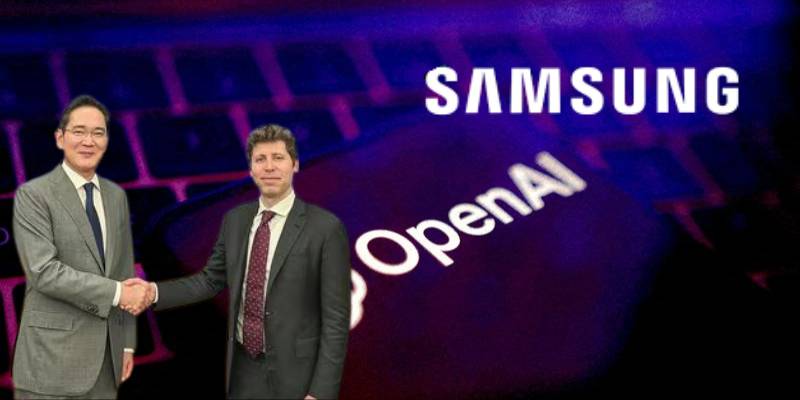OpenAI’s appetite for compute just hit a new level. The company has teamed up with South Korea’s Samsung and SK Hynix to secure a massive supply of chips for its audacious Stargate project, a next-gen infrastructure plan that could redefine the scale of AI development.
According to details, the firms will crank out as many as 900,000 semiconductor wafers every month to keep OpenAI’s hungry models fed, a figure that frankly sounds more like science fiction than a quarterly target as reported here.
There’s a twist though—Samsung isn’t just stopping at chip supply. The company has floated the idea of building floating data centers, massive AI hubs at sea that promise cheaper cooling and reduced carbon output.
The pitch sounds wild, but it comes at a time when global energy consumption tied to AI is soaring.
Samsung itself confirmed it’s actively studying the environmental upside of such unconventional solutions.
It’s worth remembering that OpenAI isn’t moving in a vacuum.
Nvidia, the chip titan already riding the AI wave, recently announced plans to pump as much as $100 billion into OpenAI’s infrastructure needs—a staggering bet that underlines how central compute has become to AI supremacy according to Reuters.
If you’re wondering why the AI race feels more like an arms race, that’s because it is.
Meanwhile, rivals aren’t sitting still. DeepSeek, one of China’s emerging players, just released what it calls an “intermediate” model while cutting API prices by half, an aggressive tactic to lure developers as reported by Reuters.
The message is clear: the global AI contest is about cost, speed, and raw compute, and everyone’s trying to outgun the rest.
And in the cultural arena, OpenAI’s launch of Sora 2, its upgraded video generation platform, shows how the company is pushing its tech beyond labs into the hands of consumers—competing not just on raw horsepower but also in storytelling, entertainment, and media as highlighted by Barron’s.
Pair that with Samsung’s hardware heft, and suddenly the picture looks less like a business deal and more like a global campaign for AI dominance.
So what does all this mean? Personally, it feels like we’re watching the industrialization of AI in real time.
Floating server farms, billion-dollar chip pipelines, and video apps designed to capture our free hours—this isn’t just tech news, it’s the scaffolding of a new digital world.
The real question isn’t whether OpenAI can build Stargate—it’s whether the rest of us are ready to live in its shadow.

